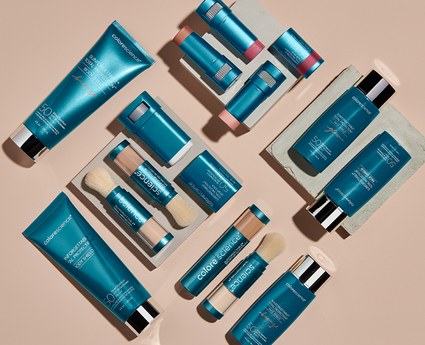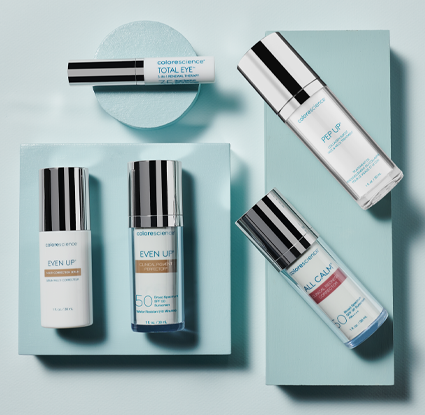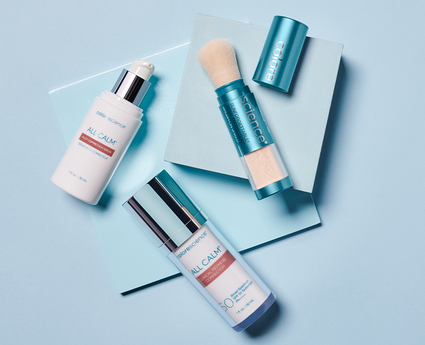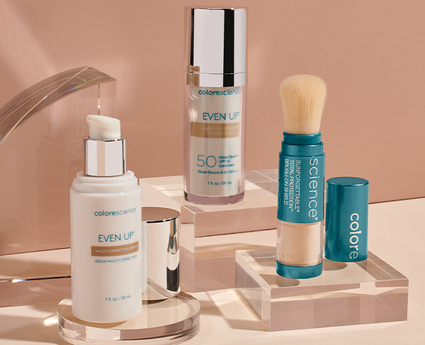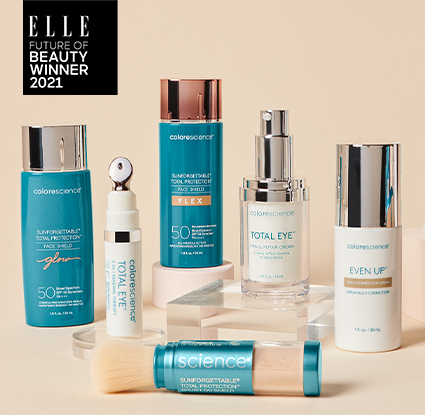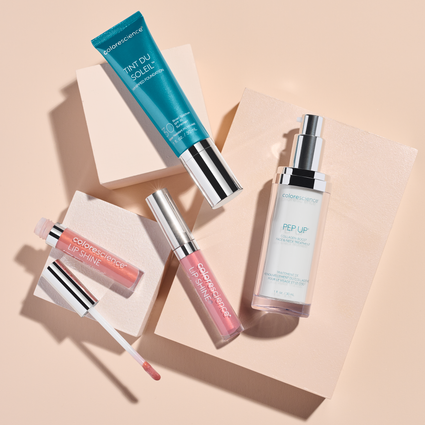Does Sunscreen Expire? Dos & Don'ts of Expired Sunblock
Have you ever found yourself digging around the cabinets in search of old sunblock* lying around? Think twice before applying whatever you may find and heading out the door. It’s critical to check the sunscreen expiration date, but many people aren’t aware that sunblock* goes bad, and that the U.S. Food and Drug Administration (FDA) regulates its safety and effectiveness.
Without strong protection against the sun’s damaging ultraviolet (UV) radiation, skin is vulnerable to sunburn, premature aging, and even skin cancer. Maybe you’ve wondered “Does expired sunscreen still work?” or how to tell if sunscreen has gone bad — this post is dedicated to addressing those exact concerns.
Read end-to-end to learn all the essential facts about sunscreen expiration, or use these links to jump ahead to get the specific information you’re looking for.
- Does Sunscreen Expire?
- Does Expired Sunscreen Still Work?
- How to Tell If Sunscreen Has Gone Bad
- Where Do You Find the Sunscreen Expiration Date?
Does Sunscreen Expire?
Yes, sunscreen expires and eventually goes bad over time, just like spoiled food. The ingredients contained within expired sunscreen formulas become less effective, meaning the product can no longer be expected to achieve the same level of SPF protection as stated on its label.
The FDA requires sunscreen expiration dates to be labeled on SPF products to indicate when the product is no longer effective. The only exception to this rule is when the manufacturer conducts stability testing that proves the active ingredient(s)* can remain at their original strength for at least three years.
*The FDA defines an “active ingredient” as an approved drug component scientifically proven to provide a specific function or to directly affect the structure of the human body (i.e. skin). This is in contrast to “inactive ingredients”, like water, that don’t necessarily create a biological effect, but nonetheless lend cosmetic benefits (such as hydration) or provide support to the active ingredients.

So, does sunblock* expire if there’s no expiry date provided? Yes, absolutely. Even if the product (or packaging) lacks a specific sunscreen expiration date, it doesn’t mean the formula will provide everlasting UV protection.
The FDA requires over-the-counter (OTC) sunscreen to remain stable and effective for three years, but there’s no guarantee on its effectiveness thereafter; expiry labels are only mandated for products that have not demonstrated proof of such stable, sustainable strength.
That means a sunscreen product that does not have an expiration date should be considered expired three years after purchase.
Does Expired Sunscreen Still Work?
The FDA recommends that you should not use sunscreen past its expiration date (if there is one), or if it was purchased over three years ago, to ensure the product provides the protection as promised in its labeling. Expired sunblock* should be discarded because there’s no assurance it remains safe and fully effective.
This applies to both chemical and physical sunscreen (also known as mineral sunscreen), but the latter tends to have a longer shelf life because they are more stable than their chemical counterparts.
Why does sunscreen expire faster in chemical formulas? The main difference between mineral vs chemical sunscreen is that they work by absorbing into the skin and using chemical filters — such as oxybenzone, avobenzone, and homosalate — to convert UV light into heat. These particles are innately unstable and can oxidize, making them less effective and significantly increasing the risk of sun damage.

Mineral sunscreen, on the other hand, uses all-natural mineral ingredients such as zinc oxide and titanium dioxide which physically rest on the outer layer of skin to actively deflect the sun’s rays and prevent UV radiation.
How to Tell If Sunscreen Has Gone Bad
First, check to see if there’s a sunscreen expiration date labeled on the product to confirm it’s still safe to use. However, sunblock* can spoil ahead of its expiry date due to exposure to high temperatures that cause the preservatives in its formula to breakdown, so even if the active ingredient works, it may not spread properly on skin for necessary coverage.
Also, frequently opening and closing the lid, or handling the container with dirty hands, could expose the product to bacteria that can grow inside the tube, potentially leading to acne breakouts down the road. To see if your sunscreen has gone bad, look for obvious signs of degradation such as:
- A difference in color, odor, or consistency
- Separation or grittiness
- Changes in how it feels or appears when applied on skin
Ultimately, use your best judgment and toss out all expired sunscreen and any product that seems off. According to MayoClinic.org, there are a few general rules of thumb you should follow to properly store sunscreen to preserve its maximum efficiency:
- Avoid leaving sunscreen in the car
- Do not expose the container to excessive heat or direct sunlight
- Store sunscreen in dark cabinets
- When outside, place containers in the shade or wrap them with a towel
If you’re wondering how often you should change sunscreen, the product is limited to three years at most — but if you’re regularly outdoors and use sunscreen frequently, know that a bottle won’t last you very long. A liberal application calls for about one ounce (the amount in a shot glass) applied over any and all exposed skin. You’ll likely need to stock back up well before the sunblock* expires.
Where Do You Find the Sunscreen Expiration Date?
Every skincare product should have a full list of ingredients as well as a sunscreen expiration date, if applicable. Pro tip: it’s a good idea to take a marker and jot down the purchase date on products that lack an expiry date so you can refer to it later.
Each manufacturer is different, but at Colorescience, you can find the date of expiry and lot number on the bottom of our products, on the opposite side of the lid.

This only applies to Colorescience products that are still undergoing stability testing, which includes:
- All Calm Clinical Redness Corrector SPF 50
- Brightening, Bronzing, and Mattifying Primer SPF 20
- Sunforgettable® Total Protection™ Sheer Matte SPF 30 Sunscreen Brush
- Sunforgettable® Total Protection™ Sport Stick SPF 50 & Sunforgettable® Total Protection™ Sport Stick Twin Pack
- Sunforgettable® Total Protection™ Color Balm SPF 50 & Sunforgettable® Total Protection™ Color Balm SPF 50 Collection
- Sunforgettable® Total Protection™ Face Shield Flex SPF 50
Outside of the products listed above, our sunscreen products that have finished going through 3-year FDA stability testing are no longer required to have an expiration date as the products are found to be extremely stable. Once the product completes and passes the testing after the 3-year period the expiration date is removed.
Our Total Eye 3-IN-1 Renewal Therapy SPF 35 & Sunforgettable Total Protection Brush-On Shield SPF 50 for example, have passed testing that proves its three-year efficiency, therefore the FDA does not require a labeled sunscreen expiration date.
Keep in mind that in Europe and some other countries, sunscreens are regulated as cosmetics and may be subject to different marketing requirements — so always be sure to read the label to understand the instructions and potential differences when shopping outside of the U.S..
In the U.S., sunscreen is regulated as a drug because it makes a drug claim: to help prevent sunburn, reduce the risk of skin cancer, and decrease early signs of aging caused by the sun. The regulations pertaining to OTC sunscreen drugs are established in the FDA’s 2011 final rule, “Labeling and Effectiveness Testing: Sunscreen Drug Products for Over-the-Counter Human Use” (76 FR 35620).
This publication identifies which drugs are subjected to the final ruling, including any formula that contains the following active ingredients:
|
|
These FDA guidelines contain very specific requirements for product labeling — backed by scientific testing — to safely inform consumers’ purchases. This pertains to not only sunscreen expiration dates but also to claims regarding SPF strength and water resistance.
Keep the following sunscreen facts in mind and learn how to read product labels to ensure you’re following the best practices for safe sun exposure.

Takeaways
Does sunblock* expire? Absolutely. To recap, here are the main points you should take away from this post:
- Sunscreen expiration dates are required on some products in the U.S.
- The only exception is for FDA-approved sunscreen that’s proven to maintain its strength for three years.
- Suntan lotion expires at the same rate as powders, sprays, and sticks, but their liquid formula may be more prone to degradation.
- Chemical sunscreen ingredients are less stable than minerals in physical sunscreen, so those products have a shorter shelf life.
- Never use expired sunscreen and discard spoiled sunblock* that looks or smells different
- Properly store sunscreen to preserve its lifespan and efficiency.
- Always be sure to read product labels, including sunscreen expiration dates, SPF strength, instructed usage, and listed ingredients.
With Colorescience EnviroScreen technology, you get coverage way beyond broad-spectrum UVA/UVB and receive unmatched protection against pollution, blue light, and infrared radiation, so you know that you’re confidently shielded against environmental stressors at every angle.
We’re proud of our transparency and commitment to offering skincare products exclusively made with high-quality ingredients. You’ll never find chemical sunscreen actives such as PABA, parabens, or chemicals** in any of our all-natural**, mineral-based, non-toxic sunscreen formulas. Browse our collection to find the right skincare solution catered to your lifestyle and needs.
*Sunblock is not a term approved by the FDA. Colorescience refers to our products as sun protection.
**Colorescience sunscreen active ingredients are always sourced from naturally occurring minerals of Zinc Oxide and Titanium Dioxide

